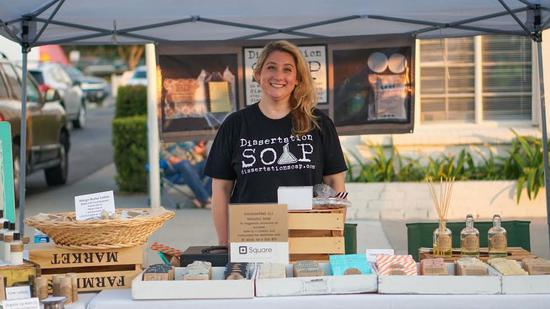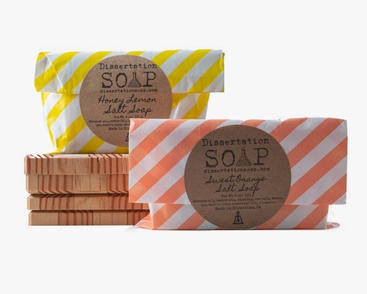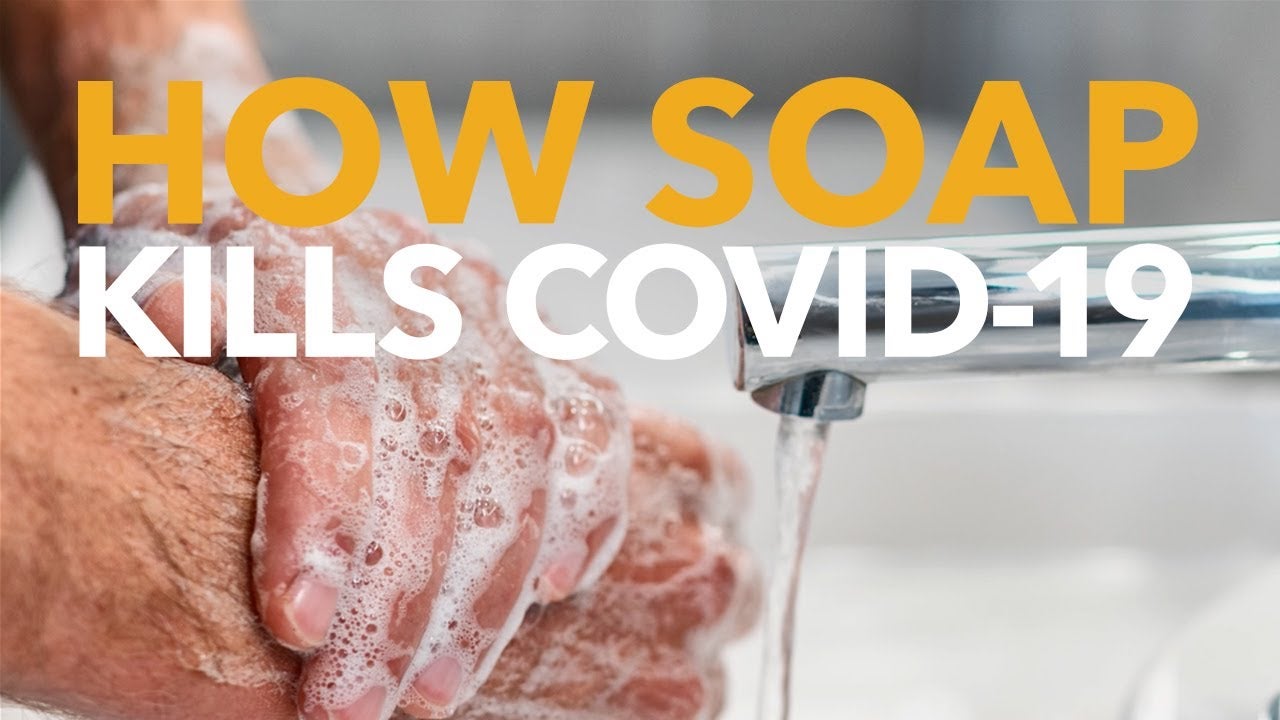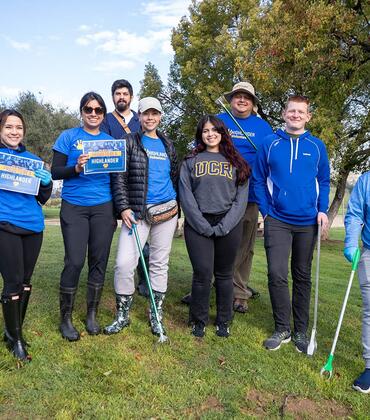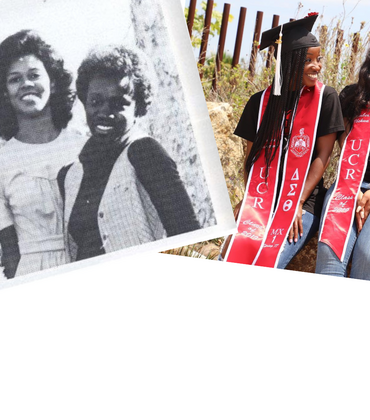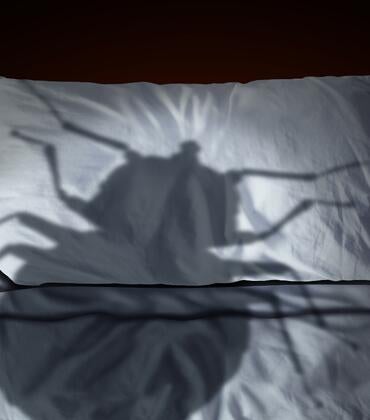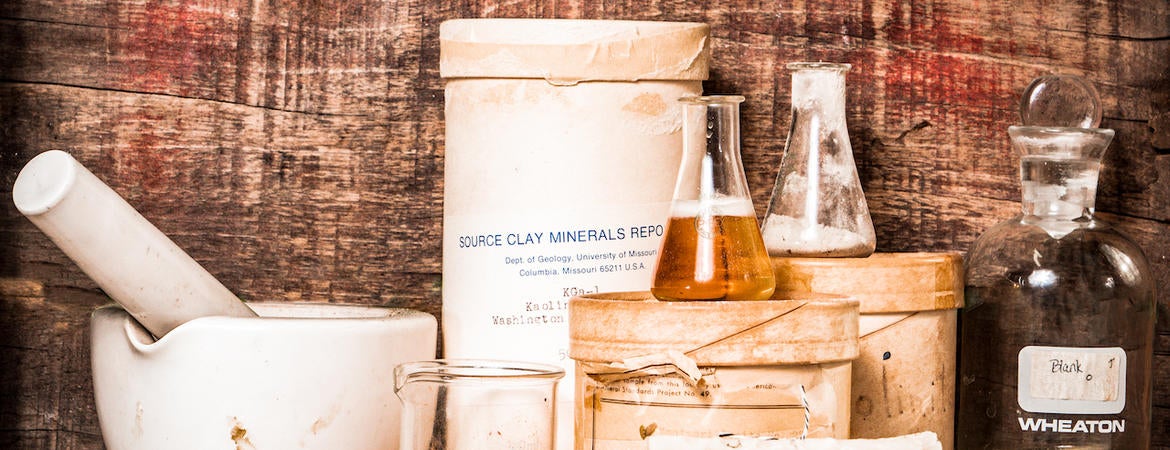
The most powerful weapon against Covid-19 is one of humanity’s oldest and most humble creations: soap.
No one knows this better than UC Riverside alumna Julie Reints, Ph.D. ’19, who began making soap at home that was gentle enough for her premature infant daughter’s tender skin. She has now turned her homemade craft into a thriving business while pursuing her doctoral research in soil chemistry.
Early on, she wrapped soap bars in pages from old doctoral theses that inspired the company name, Dissertation Soap. Before the pandemic, her sales were mostly wholesale. Now she has her hands full making soap and hand sanitizer for retail customers who, like her, are trying to protect their families.
People have been making soap for over 4,000 years. It is made by mixing fats, such as olive oil or animal fat, with a highly alkaline solution, such as lye, which transforms the oil’s triglycerides into salts of fatty acids.
Soap molecules have two “tails.” One tail binds to water and the other to fats. When you rub your hands with soap and water, the molecules combine into microscopic balls that literally pull grease and dirt off surfaces and shred the external membranes of some bacteria and viruses, including the virus that causes Covid-19.
Reints was buying goat milk soap at the farmer’s market when she started wondering how soap was made.
“A lightbulb went on,” she said. “It’s chemistry. I’m a chemist. It’s not that far outside my field of soil chemistry.”
She got a notebook and “completely nerded out” on fatty acids and the complex chemistry of soap. Soon, Reints was making more soap than her household could use, so she gave some to her sister, a nurse, who took it to work. All the nurses loved how gentle it was on their skin. Her sister convinced her, reluctantly, to start an Etsy shop.
Reints faced unique challenges on the path to her doctorate. While pregnant, she was diagnosed with thyroid cancer. Surgery to remove the tumor nicked a vocal cord, sending her to a speech therapist. Then her daughter was born prematurely.
“People told me it was OK to stop, that no one would think less of me,” Reints said. “But I felt like it was important to just keep showing up.”
She finished her research on avocado irrigation and received her Ph.D. in March 2019. Since then, she has devoted all of her time to Dissertation Soap and launched the second phase —chemistry education through workshops, such as how to make bath bombs, for all ages. Bath bombs are essential oil-scented balls made from Epsom salts, baking soda, and citric acid that fizz when placed in bathwater. She has even been able to hire an employee to help with the burgeoning enterprise.
Reints researches the fatty acid profiles of different fats and chooses oils for her soaps that are very moisturizing, such as certified sustainable palm oil. Her soap has a high superfat content, which costs more money but is better for the skin.
Skin is slightly acidic, so soap needs to be more alkaline in order to clean well. But Reints said she keeps each batch as close to neutral as possible so it’s easier on the skin. From start to finish, it can take six-to-eight weeks for a bar of soap to be ready for sale.
Dissertation soaps are made from all natural, high-quality ingredients with no artificial additives. Dyes, microplastics, and perfumes, for example, are very hard for wastewater treatment plants to remove.
“I think about the environmental impact of these products. When it goes down the drain, how is it affecting the watershed and the Santa Ana River?” she said. “Every time you take a shower, it’s a chance to make a difference.”
